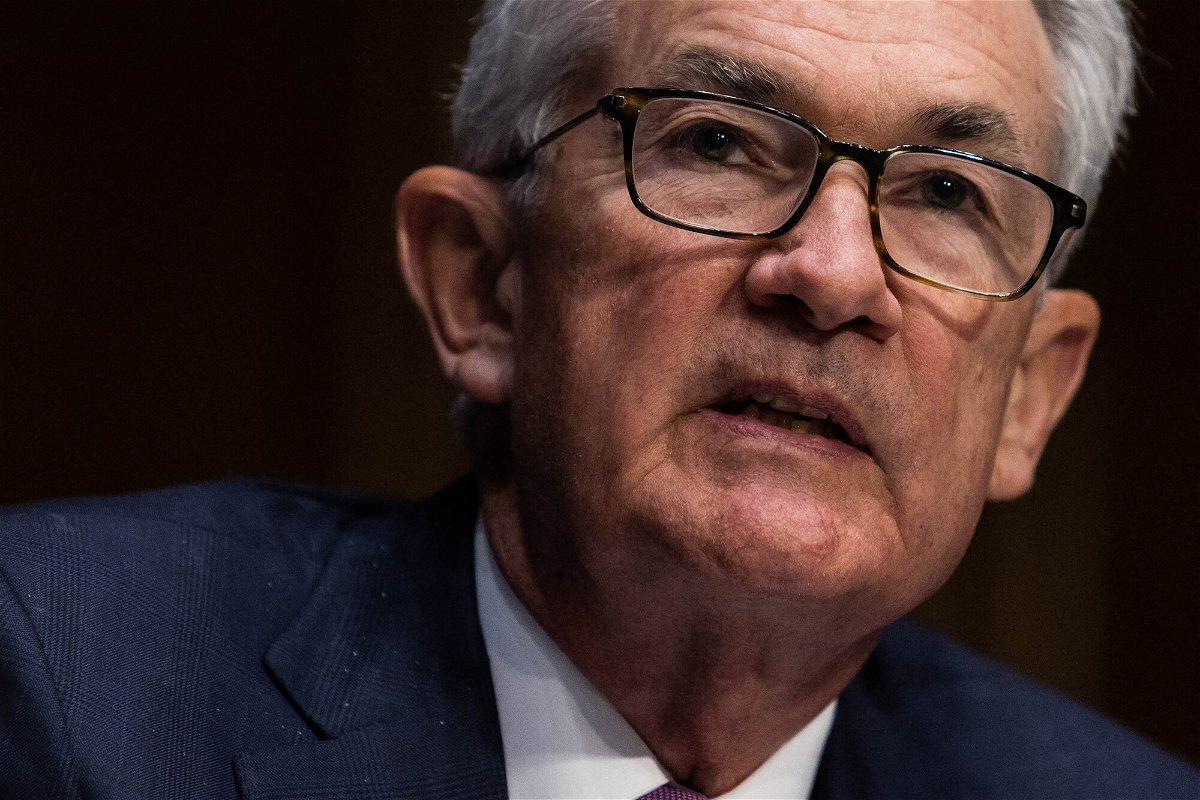Don’t expect the Fed to slow rate hikes just because of the midterms

Federal Reserve Board Chairman Jerome Powell speaks during his re-nominations hearing of the Senate Banking
By Paul R. La Monica, CNN Business
The Federal Reserve is going to raise interest rates at its next meeting on March 16 to try to put a lid on inflation. That much we know. The only question is whether the Fed will boost rates by a quarter of a percentage point or a half-point.
Right now, it’s looking like a toss-up.
But there are some Wall Street experts who think Fed chair Jerome Powell and his fellow central bankers will look to do as much as they can to curb inflation now in order to avoid more rate hikes in the late summer and fall.
Here’s why the timing matters: Rate increases could — and likely will — have a negative impact on the markets and the economy. The Fed typically tries to steer clear of raising rates too close to an election, in this case the November midterms, to avoid any perception that its policies might benefit or hurt a particular party.
“The Fed could front-end load some rate hikes so to avoid the midterms and stay apolitical,” said Jeff Mortimer, director of investment strategy at BNY Mellon Wealth Management.
The Fed will look at economic data, not the midterm polls
Others argue that the last thing the Fed will want to do is base its decisions on political calculus. The central bank is staunchly apolitical and doesn’t care about the calendar. Its so-called dual mandate is to maintain price stability and maximum employment, not ensure the status quo on Capitol Hill.
That means the Fed needs to continue monitoring economic reports, and right now, inflation pressures still suggest that there will be more rate hikes in the near future.
“The Fed can be political by not raising rates,” said Victoria Fernandez, chief market strategist with Crossmark Global Investments. “The best thing the Fed can do is ignore the fact that it’s a midterm election year and focus on data.”
That’s exactly what the agency did four years ago during the last midterm cycle.
To the dismay of then-President Donald Trump, the Powell-led Fed raised rates three times in 2018 before the midterms, including one hike in late September. The Democrats won control of the House from the Republicans in that election. (The Fed raised rates again in December that year.)
Powell was nominated to be Fed chair by Trump in 2017. President Joe Biden nominated him for a second term last November, so he isn’t beholden to either political party per se.
Plus, the Fed is more than one person. The Open Market Committee, which sets interest rates, includes appointees from presidents of both parties. Powell himself was nominated to the Fed’s Board of Governors by President Barack Obama in 2011.
Erring on the side of caution
Both Fernandez and Mortimer said they think the Fed will continue to be more reactive than proactive. They expect the bankers will act based on current data instead of trying to anticipate what the inflation numbers might look like in the next year.
“There is a lag effect to rate hikes. The Fed is not going to want to do something too big,” Fernandez said. “The Fed will take it slowly. Powell is not going to jump the gun.”
The only thing that seems certain is that market and economic uncertainty is not going away. It’s almost impossible to know what will happen in the next few weeks and months.
“If you asked me about the Fed a week ago, I would have been pretty sure the Fed would raise by half a point in March, but the likelihood of a quarter point hike is now much higher,” said Judith Lu, CEO and founder of Blue Zone Wealth Advisors, citing the worries about Russia and Ukraine.
Lu said she’s hoping that the rate of inflation will finally start to moderate later this year. If so, the Fed can then afford to take its foot off the gas.
But she added that the central bank has to remain vigilant and try to “squash rising prices,” noting that inflation is like a “hidden tax felt disproportionately by middle America.”
“The Fed will only pause if inflation data cools this summer,” Lu said. “It can’t afford to look political. It will remain loyal to the data. That’s a blessing and a curse.”
The-CNN-Wire
™ & © 2022 Cable News Network, Inc., a WarnerMedia Company. All rights reserved.